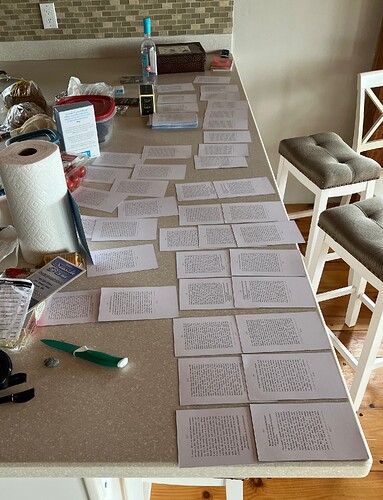Hi all, I recently completed a preservation project that might be of interest to those curious about the history of interactive fiction, in this case, of a path not taken.
As I learned several years ago from Jason Dyer’s A Very Brief History of Gamebooks, Consider the Consequences! is a 1930 book by two women, Doris Webster and Mary Alden Hopkins, that appears to be the first published work of fiction that provides the reader control of a branching narrative through explicit choices. Ie, choose your own adventure decades before CYOA was a thing.
As well as its historical significance and a fun read, the book shows an alternate path choice-based popular fiction might have taken if Consider the Consequences!’s approach had caught on like the official Choose Your Own Adventure series did in the 70’s/80’s.
Differences between Consider the Consequences!’s approach and the standards later set by CYOA books:
-
Written in third person instead of second person. Instead of becoming a protagonist, the reader is making choices for a separate character.
-
Instead of one protagonist, it follows three, each getting their own third of the book, and their possible stories and relationships overlap in a love triangle.
-
Not aimed at kids and doesn’t draw on fantasy subject matter, instead presenting “real-life” adult dilemmas like whether to refuse the responsible but boring suitor your parents favor or whether to risk your job by reporting on your boss’ financial shenanigans.
It also provides nifty graphs of each character’s branch of choices, precursors of Sam Kabo Ashwell’s exhaustive visualizations of choice-based game design patterns.
Also of note, the authors explicitly position it as a game, and suggest playing it collaboratively. From its intro:
“This game may be played as solitaire, a courting game, or a party stunt. When the players disagree, follow the choice of the majority, but make a note of the dissenting opinion, so that you can return later and find out what happens to Helen—or Jed or Saunders—when other advice is followed.”
You can read it on archive.org here: Consider The Consequences 1930 : Doris Webster and Mary Alden Hopkins : Free Download, Borrow, and Streaming : Internet Archive
